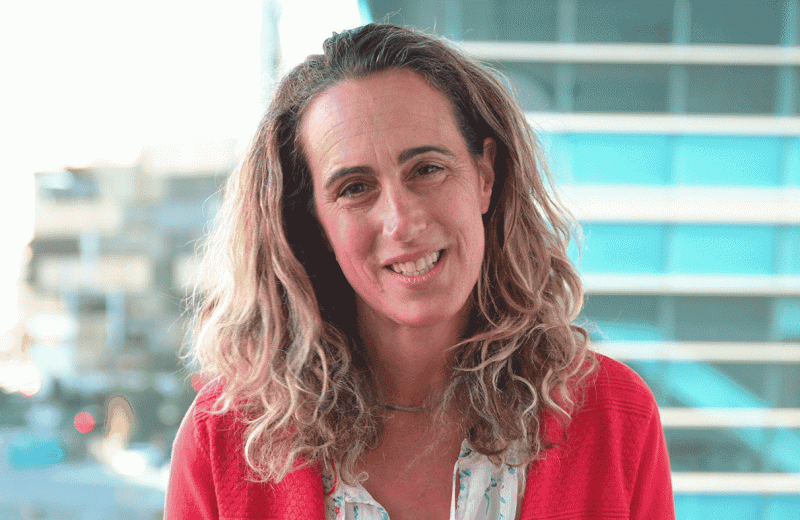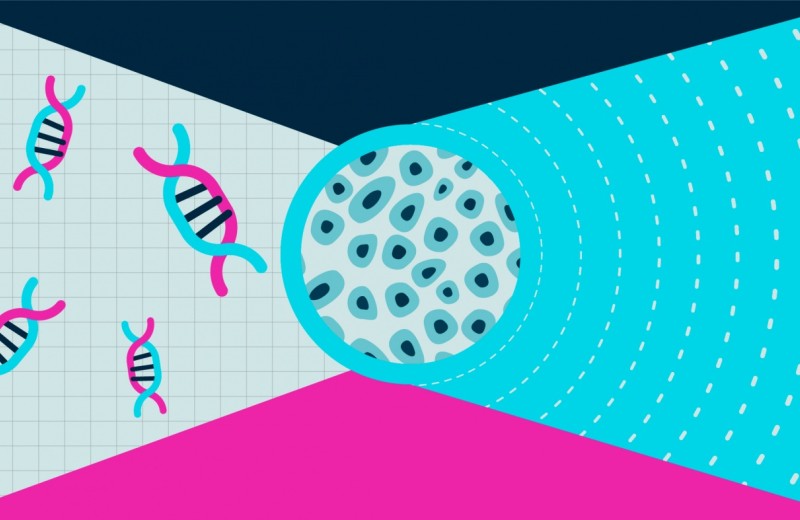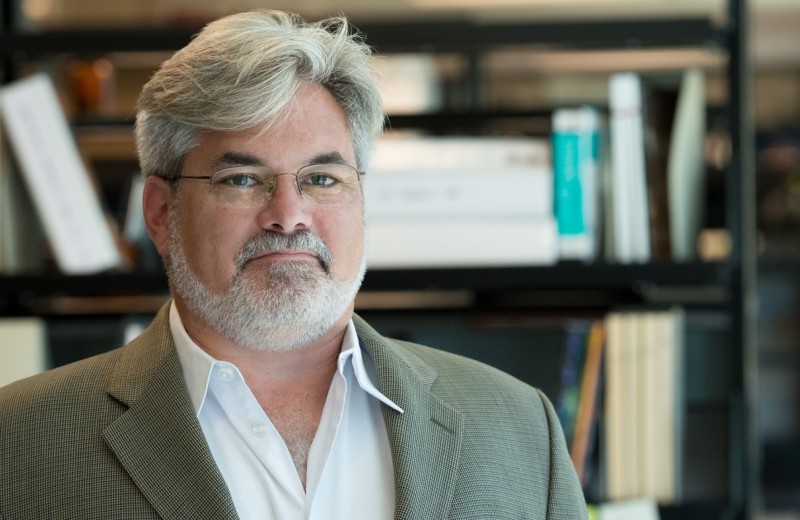Gladstone NOW: The Campaign Join Us on the Journey✕

SAN FRANCISCO, CA—March 25, 2009—The J. David Gladstone Institutes has joined forces with Taube Philanthropies and the Koret Foundation to initiate a groundbreaking research program aimed at preventing, treating, or curing Huntington's disease (HD) by the year 2020. The new Taube-Koret Center for Huntington's Disease Research has been established at the Gladstone Center for Translational Research at Mission Bay, with $3.6 million in funding from the two organizations.
HD, also called ‘Huntington's chorea’ and ‘Woody Guthrie's disease,’ is a devastating inherited, degenerative brain disorder. More than 100,000 Americans and more than 10 times that number worldwide have HD or are at risk of inheriting the disease from a parent.
Investigators Steven Finkbeiner, MD, PhD, and Paul Muchowski, PhD, of the Gladstone Institute of Neurological Disease (GIND) will build on their leading-edge research, which has led to the development of powerful assays for the identification of potential drug targets and a pipeline of several molecular targets that may modulate HD progression. Taube Philanthropies has supported the work of Drs. Finkbeiner and Muchowski, as well as other researchers for several years. This new research program is called “HD Cure 2020.”
“We believe that the focus and evolving new technologies of the HD Cure 2020 program provide a real chance to close in on a cure,” said Tad Taube, chairman of Taube Philanthropies and president of the Koret Foundation. “It is our hope that Gladstone's depth of understanding about how Huntington's progresses, combined with a well-defined and integrated therapeutic screening strategy, will enable real progress to be made toward treating or curing this devastating disease.”
“While so much is known about Huntington's disease, it remains an unsolved mystery,” said GIND Associate Director Steven Finkbeiner. “Over the last few years, we have been able to find new points of entry into how the disease progresses and where we might possibly intervene.”
Dr. Finkbeiner has pioneered new technologies that have added important new understanding to HD etiology and pathology. Dr. Muchowski has focused his work on identifying key intracellular pathways that modify progression of the disease. Both investigators have developed innovative technological and biological approaches for finding and screening small molecules that may work to modulate the disease.
“While Gladstone brings a unique and impressive foundation of Huntington's research to this program, we are extremely grateful for the visionary leadership of the Koret Foundation and the Taube Philanthropies for their creation of this center and their support of our approach,” said Andrew S. Garb, Trustee of The J. David Gladstone Institutes.
The Taube-Koret Center is located in Gladstone's Center for Translational Research where Gladstone is collaborating with several pharmaceutical companies on potential therapies for Alzheimer's disease (Merck), HIV (Gilead Sciences and JT Pharma), and for applying induced pluripotent stem (iPs) cell technology to cardiovascular disease (iZumi Bio).
About Taube Philanthropies
Guided by a long-term commitment to both secular and Jewish life, Taube Philanthropies provide direct and indirect support to projects and institutions that advance the philosophies and vision of founder Tad Taube. Central to these are the concepts and principles of a free, democratic society, including open economic enterprise, self-reliance, academic freedom of inquiry and limited government, and programs that support Jewish heritage, survival and cultural celebration.
About the Koret Foundation
An entrepreneurial spirit guides Koret in addressing societal challenges and strengthening Bay Area life. In the San Francisco Bay Area, Koret adds to the regionís vitality by promoting educational opportunity, contributing to a diverse cultural landscape, and bolstering organizations that are innovative in their approaches to meeting community needs. With roots in the Jewish community, Koret embraces the community of Israel, especially through Koret Israel Economic Development Funds, believing that economic stability and free market expansion offer the best hope for a prosperous future.
About the Gladstone Institutes
The J. David Gladstone Institutes, an independent, non-profit biomedical research organization affiliated with the University of California, San Francisco (UCSF), is dedicated to the health and welfare of humankind through research into the causes and prevention of some of the world's most devastating diseases. Gladstone is comprised of the Gladstone Institute of Cardiovascular Disease, the Gladstone Institute of Virology and Immunology and the Gladstone Institute of Neurological Disease.
About Huntington's disease
Huntingtonís disease (HD), also called Woody Guthrieís disease, is a devastating degenerative brain disorder that is inherited from a parent with the disease. Over a period of 10 to 25 years, HD slowly but steadily reduces a personís ability to walk, think, talk, and reason. Ultimately, HD renders its victims totally dependent upon others for their care. Patients with HD ultimately die from complications, such as choking, infection, or heart failure. Men and women of all racial and ethnic groups are equally susceptible to contracting HD. A child of a parent with HD is 50% likely to inherit the fatal ìhuntingtinî gene. Tragically, every person who carries the HD gene ultimately develops the disease.
The typical patient with HD is aged 30 to 50, although manifestations of the disease may arise in children as young as 2 years of age. Young people who are afflicted with the juvenile form of HD rarely live to adulthood. Today, more than 250,000 Americansóand more than 10 times that number worldwideóhave HD or are at risk of inheriting the disease from a parent with HD. The disease affects as many people as hemophilia, cystic fibrosis, and muscular dystrophy.
The HD gene was successfully isolated in 1993. Subsequently, a genetic blood test was developed to determine precisely whether a person has inherited the HD gene. However, no test can predict when HD symptoms will begin. As with other diseases that are inherited, many of those who have a parent with HD elect not to take the HD gene test.
Over the years, biomedical research involving HD has yielded a wealth of knowledge about the disease and its basic mechanisms. However, no effective method exists for preventing, treating, or curing HD. In fact, no validated drug targets for HD, besides the huntingtin gene itself, have been discovered. Although HD is one of the most cruel and devastating diseases, those afflicted are too few in number to interest most major pharmaceutical companies in developing relevant HD-targeted drug discovery programs.
Support Discovery Science
Your gift to Gladstone will allow our researchers to pursue high-quality science, focus on disease, and train the next generation of scientific thought leaders.
Meet Gladstone: Julia Kaye
Meet Gladstone: Julia Kaye
Julia Kaye is a neuroscientist at Gladstone Institutes dedicated to unraveling the mysteries of neurodegenerative diseases. Outside the lab, Kaye enjoys skateboarding, surfing, and exploring nature with her family.
Profile ALS Huntington’s Disease Multiple Sclerosis Neurological Disease KayeConnecting the Dots: From Stem Cells to Human Health
Connecting the Dots: From Stem Cells to Human Health
Since Shinya Yamanaka discovered a method to create human induced pluripotent stem (iPS) cells, Gladstone researchers have built on this technology to create numerous iPS cell lines, coax iPS cells into a myriad of tissue types, use them as a tool to study disease, and even begin creating therapies using these cells.
Research (Publication) Stem Cell Core Alzheimer’s Disease Huntington’s Disease Finkbeiner Lab Huang Lab McDevitt Lab Srivastava Lab Yamanaka Lab CRISPR/Gene EditingTaube Philanthropies Announces $3 Million Gift to Stanford Medicine and Gladstone Institutes for Huntington’s Disease Research
Taube Philanthropies Announces $3 Million Gift to Stanford Medicine and Gladstone Institutes for Huntington’s Disease Research
The funded program will, for the first time, introduce gene editing and stem cell therapies in the search for a potential cure
Huntington’s Disease Finkbeiner Lab



